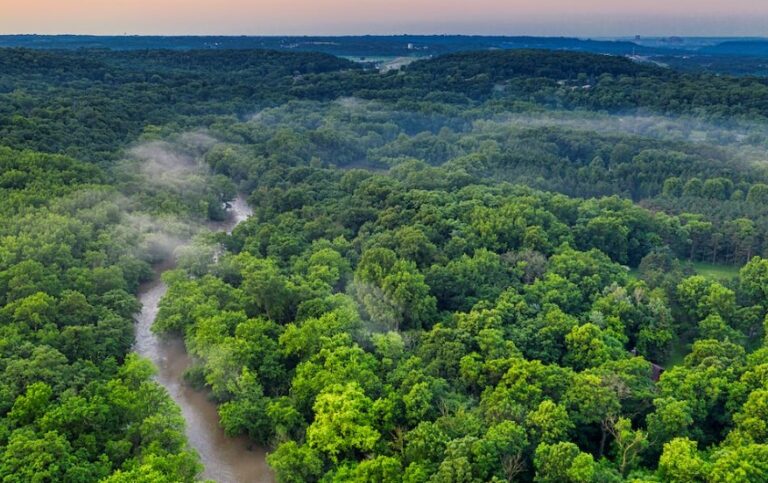In less than twelve months, Brazil’s socialist administration achieved a dramatic 60% decrease in deforestation in the Amazon, compared to levels achieved during the right-wing mandate of former President Jair Bolsonaro.
This rapid progress clearly underlines the importance of the political change established in the country since the election of the previous trade unionist and representative of the workers’ left wing, Luiz Inacio Lula da Silva, to the office of president.
During his four years of presidency instead, Bolsonaro has declined the financial support offered by the G7 for the good of the Amazon, allowed the commercialization of portions of the forest through Facebook, perpetrated attacks on indigenous communities who work to safeguard it and has significantly reduced funding for its conservation.
Table of Contents
A new course for green Brazil
Since taking office on January 1, 2023, Lula’s government has adopted decisive measures to limit environmental impact and promote sustainability.
It tied the hands of the soybean and cattle ranching companies that continued to grab chunks of the rainforest under Bolsonaro.
Furthermore, he blocked a road construction project that would have increased deforestation fivefold, orchestrated military operations to drive out illegal miners and loggers, and created new protected areas managed directly by indigenous peoples. These collective efforts are shaping a greener future for Brazil.
Under Lula’s presidency, deforestation decreased by 60%
The Deter Amazon surveillance system has reported considerable success with policies that achieved immediate results. According to satellite data, deforestation has fallen by 60% compared to 2022.
These results are positive not only for Brazil, but for the whole world, given that the Amazon rainforest is fundamental in combating the climate crisis and capturing greenhouse gases.
Currently, we are moving towards a summit that will involve all the countries in the area, such as Brazil, Colombia, Bolivia, Peru, Ecuador, Venezuela, Guyana and Suriname, in order to protect the Amazon. This generates optimism regarding the implementation of the Amazon protection plan prepared by Lula.
The project, which involves the creation of an international scientific group made up of the eight countries involved, is divided into four fundamental objectives:
- protection of the forest and indigenous populations;
- fight against inequalities;
- strengthening of democracy;
- the achievement of zero deforestation.
These ambitious steps are charting a new path towards sustainable management of the Amazon and a greener future for the planet.
The turning point for the Amazon: prospects and challenges for Brazil
Brazil is back on the right track. He has finally returned to dealing with the protection of the largest rainforest in the world, a fundamental lung for the environmental balance of the entire planet. However, despite the progress made, questions and many doubts remain about the real possibility that Brazilian politics will achieve the promised results.
Basically, there are two reasons for concern, net of the enormous weight that the agribusiness lobby, supported by far-right parliamentarians, continues to have in the country.
The first reason concerns an alarming fact: 2,648 square kilometers of rainforest permanently lost, an area larger than the entire extension of Luxembourg by way of comparison. While appreciating the turnaround in trend, it is essential not to settle and continue to place emphasis on this challenge.
The second point of concern is even more serious. It concerns a law approved at the end of May by the Chamber of Deputies, under the control of the conservatives (presided by Arthur Lira, a close ally of Bolsonaro). Currently under consideration by the Brazilian Supreme Court, the law relook at the principle of “marco temporal”, which has gained favor with the “exploiters” of the Amazon, but has caused deep concern among indigenous populations.
In summary, while Brazil appears to be embarking on a recovery path towards the protection of the Amazon, there is no shortage of challenges and the political landscape presents gray areas that require constant monitoring and constant commitment to guarantee a sustainable future for this precious resource natural.
South American presidents embark on a shared path
At the beginning of August, President Lula kicked off the regional Amazon summit in Belém, Brazil. This event marks the first meeting of the presidents of the South American countries hosting the Amazon rainforest in fourteen years, with the aim of charting a common path for the protection of this crucial bioregion and to address the threat of organized crime.
During the summit, Lula stressed that Brazil is open to collaboration with richer nations in order to preserve the “lungs of the planet”. However, he reiterated that to effectively address climate change, significant financial support is needed.
He declared that although developed countries have promised one hundred billion dollars, so far these funds have not yet arrived: “We are still waiting for that money,” said the former trade unionist.
Towards a solid and engaging “Amazon bloc”
In Lula’s vision, this “Amazonian bloc” should consolidate further and present itself as a united front during key events such as the UN COP30 on climate change, scheduled for Belém in 2025.
So far, the results achieved include individual ratification of the Paris Agreement and the promise to reduce carbon emissions in the coming decades. This common commitment represents a significant step towards safeguarding the Amazon and the global fight against climate change.
Read also: The 7 largest forests in the world: their benefits and importance for the planet












